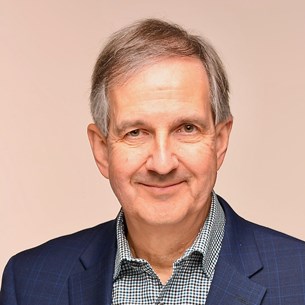I wrote a blog post here a few weeks ago about why I use Twitter, and I was busy this past weekend at the ASCO Breast Cancer Symposium trying to do as much live-tweeting as I could from the meeting. (To find related tweets, go to twitter.com and search for the hashtag #BreastCaSym.) I want to say a few words about medical blogging. Tonight I was lucky enough to be a guest on the Johns Hopkins main campus at a writing class for physicians, taught by Mary Knudson, a Hopkins lecturer and author from the Washington, DC area. Mary told me that this class, which is designed to teach writing skills to physicians, is usually held as a one-day seminar, but it was recently expanded to 10 weekly classes on Tuesday nights because of interest and the commitment of the dean. Tonight’s topic was medical blogging, and her students were asked to come up with their own blogs and present an idea for an initial post or series of posts to the rest of the class. She asked me to speak about the use of social media from the standpoint of a professional society, so I talked a little bit about ASCO’s social media strategy, including the recent launch of this ASCO Connection website, designed to bridge the gap between ASCO’s print publications and some of its electronic offerings, such as the EHR Social Networking site, now rolled into ASCO Connection. Mary invited two other guests well known in the medical blogosphere, Dr. Val Jones, currently CEO of Better Health and formerly of Revolution Health, and Dr. David Kroll, a Ph.D. pharmacologist from NC, well-known for a number of blogging activities, including two science blogs, Terra Sigillata and a blog on PLOS called Take As Directed. They made a number of excellent suggestions in their critiques of the student proposals, and I learned a lot about how to be a (more) successful medical blogger.
I won’t spend much time on the pros and cons of starting a medical blog, except to say that every blogger needs to have a commitment to the process, especially posting frequent content updates, and a clear understanding of his/her intended audience. Many physician bloggers with a predominantly lay audience write to express an opinion about new medical knowledge and to teach and to give advice to patients. At tonight’s class, both David and Val made the very salient point that there is a great need for physician voices in the blogosphere to counter pseudoscience and misinformation from other sources, such as the anti-vaccine movement. In addition, Val Jones spoke of how bloggers can sometimes influence governmental policy, and that using a blogging platform is now viewed as a legitimate form of expression. She gave examples of how her blog posts made it on to CNN and into some pretty high echelons in the public policy arena. Another important theme about developing a successful blog is the necessity of creating a blog community and ecosystem. A blog can’t just be content, but rather there has to be interplay between the blogger and the readers’ comments and responses to the posts.
Webcina.com has a great video tutorial overview about medical blogging that I highly recommend. Also, take a look at the recent article from ASCO Connection about Pacific Oncology and Hematology Associates’ use of social media in their San Diego practice, especially Facebook and Twitter. Social media will play an increasingly prominent role in both the community and academic settings, and practices and institutions will need to utilize these various “Web 2.0” tools such as Twitter, Facebook, You Tube, blogs, and podcasts to remain relevant to more and more patients and potential customers.
The ideas and opinions expressed on the ASCO Connection Blogs do not necessarily reflect those of ASCO. None of the information posted on ASCOconnection.org is intended as medical, legal, or business advice, or advice about reimbursement for health care services. The mention of any product, service, company, therapy or physician practice on ASCOconnection.org does not constitute an endorsement of any kind by ASCO. ASCO assumes no responsibility for any injury or damage to persons or property arising out of or related to any use of the material contained in, posted on, or linked to this site, or any errors or omissions.


Recent posts